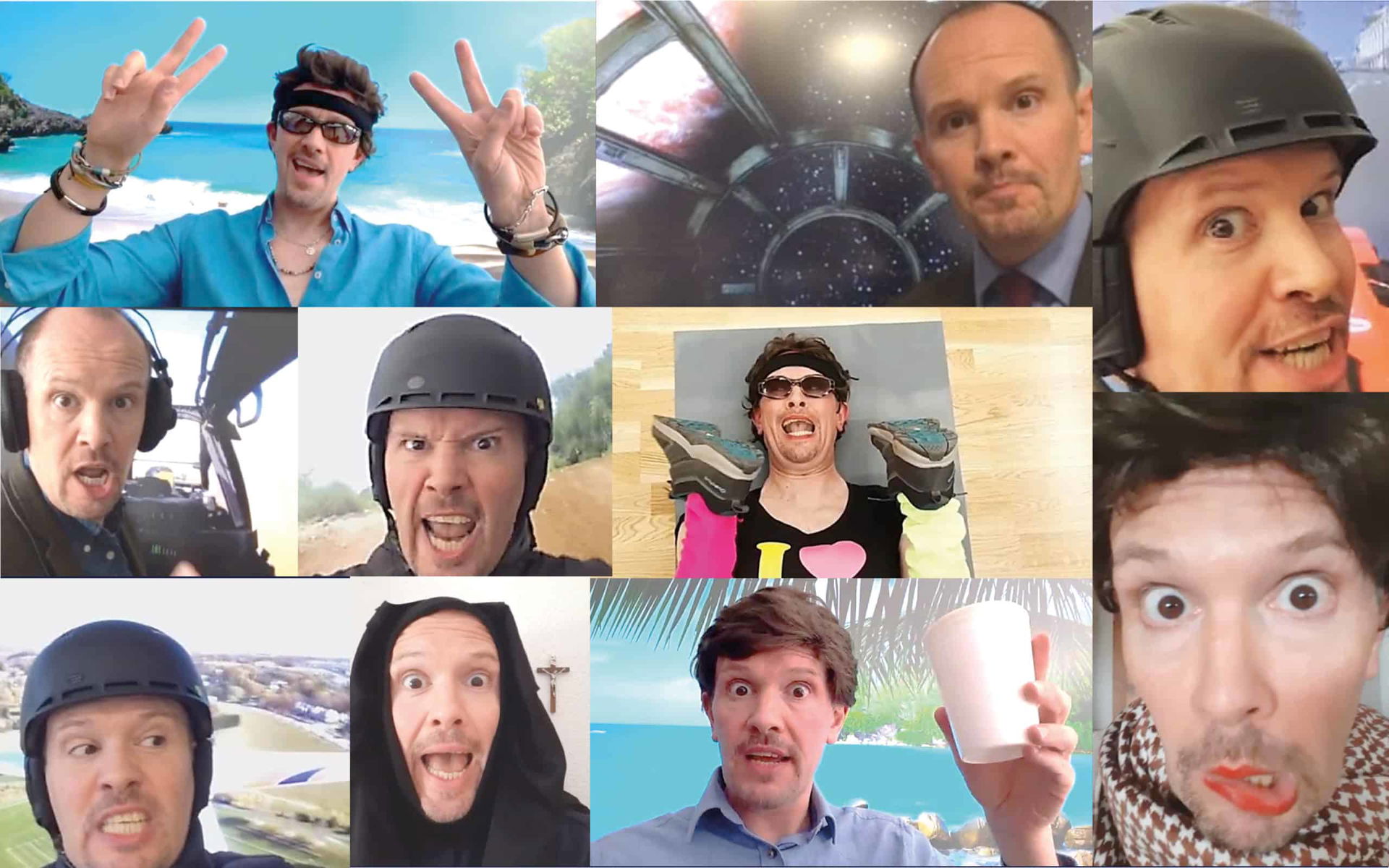How Virtual School has made me a More Creative Teacher

If you’re like me, you will have watched television recently with a sense of mild horror as ashen faced parents all over the world have stared blankly into the unflattering fish-eye lens of their laptop and opined having to home school their offspring each day. Watching their printer spew pages of indecipherable, nonsensical activities for their children. As parents, how many of us have found ourselves exasperated as those same pages fluttered to the dining-room floor? Perhaps after a particularly irate battle, and fired a parting shot to our children ‘I bet you don’t speak to Miss Jenkins like that!?!’ just as the sound of a slamming bedroom door resonates around the house?
The Covid-19 crisis has given us all pause for thought about education. Inevitably, confinement has afforded moments of great introspection for teachers around the world who have faced a unique problem. How can we best offer consistently high quality, meaningful and creative learning in the virtual, online environment? We are not talking about an online tutor who spends an hour a week coaching for exam success. We’re talking about something more substantial and revolutionary. Many of us have had to return to the fundamentals of our teacher training. We’ve needed to ask ourselves ‘How can I communicate this topic effectively? How can I enthuse and inspire these young people using the online capacity available to me?’
Stepping out of the exam curriculum
Yet these dark days have also afforded us huge opportunities for invention. As a result, we have had to learn new ways to be relevant, impactful and creative. The creative teacher always leaves an unquantifiable amount of their planning to that special alchemy that takes place between the triumvirate of teacher-topic-student. Therefore, if we allow ourselves to be truly creative teachers, then we can never be absolutely sure of what is going to happen.
That, invariably, is how magic happens and results in those bottled lightning moments when we see the spark ignite in students. In many ways the current crisis has allowed us to abandon part of the drear of exam coaching and return to the reason we became teachers. To impart a love of subject to the young people in our care. We have been able to cast off the shackles of set texts and internal assessments. This allows us to help students to develop essential skills that will prepare them for the future. As a result, we have been able to do all of this with absolute creative freedom.
Since the confinement, I have heard colleagues speak with genuine excitement about the opportunities of building a new, albeit short term, curriculum. Many of us have relished the experience of working in newly configured teams, beyond our faculties, and therefore collaborating with colleagues from different departments. This itself necessitates approaches to our own subjects. It therefore allows us to look for meaningful ways to teach transferable skills and implement cross-curricular learning.
Taking risks in teaching
We have had to give additional weighting to creativity in our teaching, making sure the students are motivated and entertained. For many, the ‘E’ word there will alarm and appal: are we children’s entertainers!? Balloon folders or sea-side conjurers?! However, the importance of keeping our audience entertained should not be underestimated; it is when we are fully engaged that we learn best. So while of course, there must be academic rigour and tangible progress, these elements will not be fully realised without the creativity, sense of play and feeling of entertainment that should be within our toolkit as teachers and foregrounded in our planning. This resonates with what our extensive work with NEASC has taught us. The importance of being creative and taking risks, and we remain committed to those ideals. It is for this reason that our staff collectively produced The Beau Soleil Book of Creativity.
Instilling creativity in our teaching has resulted in thoroughly engaged students who have attended lessons in high numbers. Students and teachers have made videos and podcasts. They have fashioned in plasticine and foil. They have stood on their heads and contorted their bodies for physical challenges. Written scripts, penned poetry and recorded songs. Finally, they have climbed Kilimanjaro together (okay, in a virtual sense). They walked, ran and cycled to get there.
The teary-eyed and tiresome Churchillian hyperbole from newscasters, presenters and celebrities tries to convince us all that we humanity will emerge from the crisis reinvigorated and changed. That remains to be seen. However, what is certain is that we will emerge presented with real opportunities for creative progress in education. In our local context, it is exciting to be on the cusp of returning to a school that will retain the excellence that has been our watchword for the last 110 years. Furthermore, it will also embed the groundbreaking technological and creative experiences that we have adopted recently.
About the author
Dr Paul Lynch joined Beau Soleil in September 2018 as Second in English Faculty. He relocated from the UK where he spent 18 years in Catholic state school education. His background is in English, Drama and Film and he has researched, lectured and written on the Cold War in Film & Literature.
More from International School Parent
Find more articles like this here: www.internationalschoolparent.com/articles/
Want to write for us? If so, you can submit an article for consideration here: www.internationalschoolparent.submittable.com
